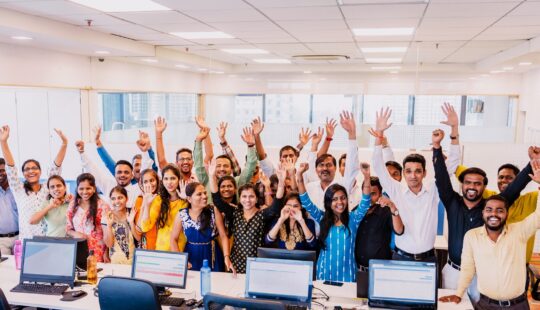Germany’s best-known newscast, Tagesschau, carried a story on its homepage at the end of January titled “New Supply Chain Act: First Repayments Made to Migrant Workers.” Its investigative team had discovered that Taiwanese subcontractors of German automotive suppliers such as Bosch, Continental, and Hella had begun reimbursing migrant workers for job recruitment fees.
Many of these workers come from Vietnam and paid three to four times the minimum annual wage typical in their home country as a recruitment fee for their jobs. Some even had to fork out the equivalent of €950 on top as a deposit, returnable only if they worked their full three-year contract. The majority of the workers and their families took on significant debt to do so, say those affected.
New Human Rights Laws Proving Effective
Tagesschau’s investigations were triggered last year following reports published in current affairs publications Le Monde Diplomatique and The Diplomat. Following up on the allegations, the European automotive suppliers launched their own probes and, after uncovering human rights abuses, reached agreements with their business partners in Taiwan that affected workers would be repaid and that new recruits would no longer have to pay fees to secure a job.
The fact that these human rights violations were identified and at least partially eliminated appears to be a first success of the German Supply Chain Due Diligence Act (LkSG), which came into effect on January 1, 2023. It sets out the due diligence duties of companies operating in Germany and obliges them to respect human rights and environmental standards within their global value chains. The act thus aims to make the UN Guiding Principles on Business and Human Rights legally binding. Similar laws are in force elsewhere in the world too, including modern slavery legislation in the UK and Australia and the California Transparency in Supply Chains Act.
Respect for Human Rights and the Environment along the Supply Chain
The LkSG sets out the international human rights and environmental standards that companies must comply with to fulfill their due diligence obligations. These include, among others, prohibiting child labor, slavery, forced labor, and torture; allowing the formation of employee representation bodies; ensuring freedom from discrimination; and protecting against the unlawful seizure of land, the disregard of occupational health and safety obligations, the withholding of an adequate wage, and harmful soil alteration or water contamination. Violations can result in heavy fines and in the offending company’s exclusion from public tenders. Indeed, the draft EU Supply Chain Act that is currently being negotiated is in some respects even stricter than the German act.
The LkSG stipulates that all companies above a certain size must designate responsibilities, for example by appointing a human rights officer. This officer is tasked with monitoring the implementation and execution of risk management, which includes reviewing the company’s risk analysis as well as its remedial and preventive measures.
Stephanie Raabe from SAP’s Corporate Sustainability team has been working on and driving this topic for many years. She was named SAP’s Human Rights Officer on January 1, 2023. “Companies that are serious about sustainability must take human rights seriously too,” she says. The 17 United Nations Sustainable Development Goals (UN SDGs) are designed to improve people’s lives while promoting human rights; for example through SDG 1 (No Poverty), SDG 2 (Zero Hunger), SDG 3 (Good Health and Well-Being), SDG 8 (Decent Work and Economic Growth), and SDG 10 (Reduced Inequalities). Human rights are part of SAP’s sustainability ambition of “zero emissions, zero waste, zero discrimination,” Raabe says.
Putting the Act into Action
When the German government announced its intention to introduce a supply chain due diligence law some two years ago, Raabe and her colleagues set up a project team with members drawn from Sustainability, Global Procurement, Global Risk and Assurance Services, and People and Operations. Tasked with analyzing the legal requirements and organizing their implementation, the team succeeded in getting SAP compliant in time for the law’s rollout on January 1, 2023. This included defining fixed responsibilities, establishing a complaints procedure, and analyzing the risk of violation in SAP’s own operations and its supply chain.
The team also seeks collaboration with other enterprises affected by the new laws, for example via industry associations. “We can only exert real influence if we pull together with other companies. Take the procurement of hardware, for instance. We need to ensure that human rights are not violated in the mining of raw materials in developing and emerging countries,” Raabe says.
In short, the LkSG obliges companies to establish structures, processes, strategies, and behaviors that respect human rights. But it also compels them to take remedial action if specific violations do occur. This would be the case, for example, if a company committed or was complicit in a human rights violation.
Decent Wages
Raabe gives us an example: “An analysis we did in 2022 revealed that six employees in Brazil who joined SAP through an acquisition were unable to maintain a reasonable standard of living, despite earning the local minimum wage. When we found out, HR reacted and raised their wages in the next salary round. Unfortunately, in some countries, the statutory minimum wage is too low to constitute a decent living wage. This case further shows that we also need to take human rights considerations into account for acquisitions.”
Nevertheless, the analysis concluded that SAP pays an appropriate or good salary in most countries and thus has a very positive impact on the lives of its employees. “Thanks to the analysis,” she notes, “we were able to identify and quickly resolve the deviation in Brazil.”
As Raabe points out, the LkSG requires SAP to always take effective preventive and remedial measures based on its risk analysis. In doing so, the company is allowed to prioritize based on the degree of risk. “For SAP’s supply chain, this means scrutinizing at-risk suppliers in more detail, for example, and engaging them in dialogue. But we also have to take a critical look at our own purchasing practices. We need to ask, ‘Is it even possible for a company to pay a decent living wage for the price it’s quoting to us?’” she explains.
A Step Further
For SAP’s Human Rights Officer, however, it is not simply a question of implementing the legal requirements. “As a sustainability thought and action leader, SAP must do more than just comply with the law,” Raabe explains. “We need to consider human rights in everything we do. Among other things, this means examining the impact we and our solutions have on our customers – for instance, in the area of artificial intelligence. The SAP AI Global Ethics organization has been exploring this issue for several years now.”
The aim of the Corporate Sustainability team is to analyze and understand SAP’s impact on human rights in its entirety. To this end, it also aligns with colleagues on the product side to share insights on how SAP solutions can help respect human rights and the environment – and meet legal requirements even more simply and effectively.
“Solutions that spring to mind are SAP Ariba Supplier Risk or SAP Business Network, which can help increase transparency along the supply chain. We want to leverage these capabilities ourselves, so we collaborate with SAP partners that provide us with useful data for analysis in SAP Ariba Supplier Risk,” Raabe says.
“But there’s more to human rights due diligence than analyzing supplier risk,” she adds. “That’s why I also work with colleagues from the product side to position and drive other areas in our solution portfolio, such as incident management, occupational health and safety, reporting, and stakeholder analysis in the context of human rights due diligence.”
Relevant for All Employees
Raabe sees one of her most important tasks as making all employees worldwide aware not just of the rights they themselves enjoy, but also of the rights they touch through their work, for example when they work with suppliers. Her team has therefore developed the “Respecting People and Their Rights” info session, which is available in many languages and aims to sensitize participants on how they themselves are treated and how they should treat others – always with respect for the dignity of others. It also shows where they can turn if they feel their rights are being violated. “We worked with the Office of Ethics & Compliance, People Compliance, and SAP Global Security to open up the Speak Out at SAP tool for complaints about human rights and environmental due diligence violations,” she says.



